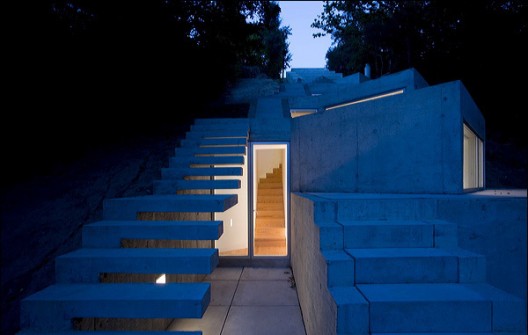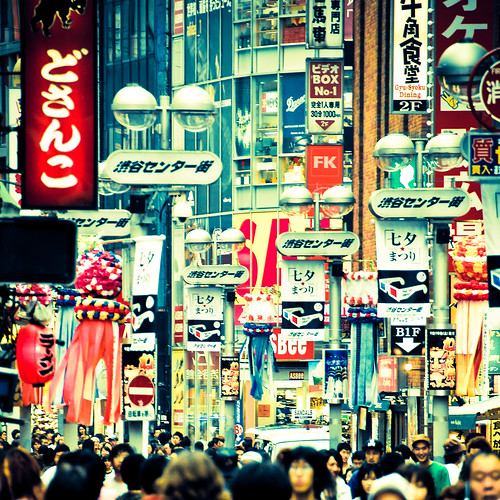
Fast-forward a bit. Let's say that it's 2050, since that seems to be a popular year for speculation these days. You're living in a stylish downtown penthouse a few blocks from a gleaming transit station servicing three different high-speed lines. You work in an office building as a Chief Innovation Officer -- not a light title to carry, by any means -- for a major technology firm. One day after work, you take a train a few miles west of the bustling commercial hub where you work to a rapidly-gentrifying neighborhood to meet a friend at a sunny sidewalk cafe on a dense street filled with shops and new condos. You are living the American Dream, with a beautiful home and a fantastic job in the heart of a dynamic urban center with its finger pressed firmly against the pulse of globalized culture. You are a proud resident of one of the world's Great Cities, capital letters required.
Now, imagine that that city is Las Vegas.
It sounds like science-fiction, no? But, in a recent post written from the American Planners Association convention in Sin City, California Planning & Development Report contributor Bill Fulton argues that Vegas is on the track to claiming a spot on the shortlist of the most exciting urban places on our already highly-urbanized planet. While your initial reaction may be something along the lines of "Say whaaaaat?" (mine certainly was), there is something very refreshing -- even inspiring -- about this idea.
Fulton's argument, in a nutshell: "Vegas is a not-too-subtle reminder to planners about how great cities are really created: You stuff vast amounts of money into a tiny space for decade after decade until the mixture of wealth, commerce, entertainment, and culture becomes so combustible that it finally explodes. Paris, London, Tokyo, San Francisco, Chicago, New York – all were built on this model."
There are so many ways to poke holes in this idea, which is oversimplified almost to a fault, and in fact this post was intended to do just that. But soon after the writing began, I realized that Fulton's speculated future for Las Vegas was far more interesting (not to mention uplifting) than much of urbanism discussion today. Contrast the idea of Vegas, one of the least sustainable cities in the country, as changing its tune and reinventing itself with the Die-or-Be-Drowned harping of James Howard Kunstler, a pundit whose bullheaded pessimism and truly shocking lack of imagination have just about made him a caricature of himself. Mr. Kunstler's tireless drumbeat: "Our gigantic metroplex cities will prove to be inconsistent with the energy diet of our future. I think our smaller cities and towns will be reactivated. We are going to be a far less affluent society."
Perhaps what's missing from the debate over how cities will deal with climate change is something as simple and extraordinarily difficult as optimism. After all, the combination of wealth, commerce, entertainment, and culture is, when you boil it down, mostly what accounts for the rises of cities like New York, Paris, London, and Tokyo. But there was more to it than just a healthy skeleton; there was meat on them bones, so to speak. These Great Cities were places that generated potential as much as they generated wealth. Many millions of people moved to these cities not on the promise of a better future, but on the hope thereof.
The city of Indianapolis is easily one of the least-interesting large cities in America, if not the world. But there is a pride of place there nonetheless, and on several occasions I have read or heard discussions about how to make Indiana's capital a "world-class city." What if talking the talk is an effective way to learn how to walk the walk? The verdict is still out on Indy, but look a little to the west for an idea of what could be. After all, a good deal of Chicago's greatness came from early residents, who were famous for their ability to bluster and boast, claiming greatness long before it was actually achieved (which, incidentally, earned Chicago its most famous nickname: The Windy City). These boosters and bright thinkers pushed and shoved their city into greatness, and without them Chicago would likely be a very different place today.
So who says that Vegas can't become, as Fulton suggests "the next New York?" While it would seem like a miracle to most of us living today, stranger things have certainly happened, and in less time. Thomas Friedman wrote in a recent column for the NY Times that "[Americans] want to do nation-building. They really do. But they want to do nation-building in America...They want our country to matter again. They want it to be about building wealth and dignity — big profits and big purposes. When we just do one, we are less than the sum of our parts. When we do both...no one can touch us."
There is a palpable desire in this country for very real and serious change (notably reflected in the presidential candidates' impassioned adoption of that very term in the current election season). Who are we to look to to shape how we think about the future? People like Fulton...or people like Kunstler?
 (Photo from Flickr user Christopher Chan. The original full-color version can be viewed by clicking the photo.)
(Photo from Flickr user Christopher Chan. The original full-color version can be viewed by clicking the photo.)Links:
APA Conference: Love It Or Hate It, Vegas Is A Great City In The Making (CDPR)Suburbia's End? (Richard Florida)Who Will Tell the People? (NY Times)























